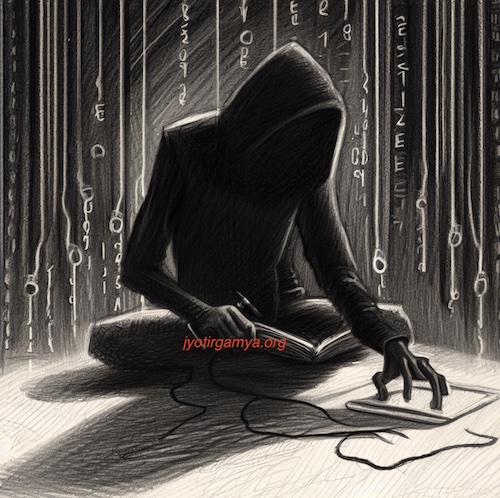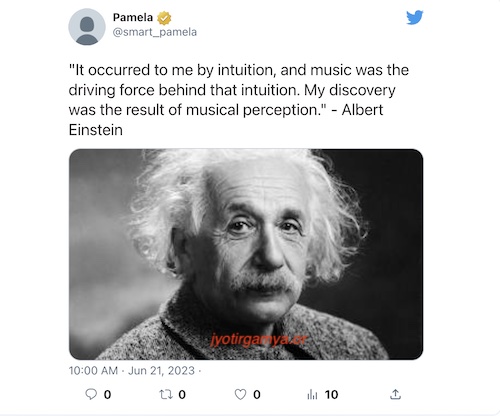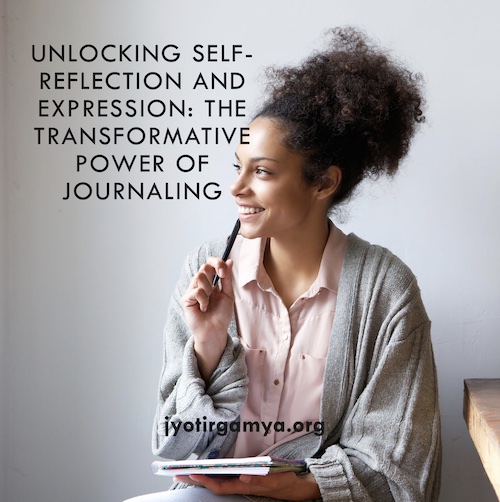Unlocking Self-Reflection and Expression: The Transformative Power of Journaling
Story: The Power of Journaling to Unveil Manipulation
David, a talented musician stood center stage, a warm glow casting upon his face. He skillfully strummed his guitar, pouring his heart and soul into each note. The audience was transfixed, their eyes fixed on David’s mesmerizing performance. Pamela stood, her heart beating faster with each note being played. She had never seen anyone with such passion and talent before and fell for him head to toe.

David had always been known for his unwavering dedication to his music. He had spent countless hours honing his craft, pushing the boundaries of his abilities. His authenticity and innocence shone through in his melodies, and people were drawn to his genuine nature. But little did David know that Pamela harbored a dark side, a side that would soon attempt to manipulate him with deceit.
Pamela lost in her insecurities and inefficiencies, saw David as an opportunity to elevate herself and gain the validation she desperately sought. She was disinterested in the world around her, often resorting to pretentious behavior to garner attention and control. And now, she had set her sights on David.

Determined to gain an advantage, Pamela resorted to extreme measures. She hired hackers to gain unauthorized access to David’s computer and private digital journal to exploit his innermost thoughts and emotions. Armed with this stolen information, Pamela devised a plan to mirror David’s interests and manipulate him further.

She started by observing David’s online presence and mirroring his likes and preferences on various social media platforms. She posted about his favorite sports stars, bands, and hobbies, crafting a false image of shared interests.
At first, David saw this as a sign of commonalities, feeling flattered by Pamela’s apparent admiration. However, as time passed, he began to notice a pattern, a sense of artificiality in her actions.
Unbeknownst to David, Pamela had been meticulously skimming through his private journals, absorbing every intimate detail of his life. She would use this knowledge to bring up topics and interests that he had never expressed a genuine interest in, yet she would persistently discuss them as if they were her passions.

One night, David reflected on his fascination with the personal life of a renowned scientist in his journal. To his surprise, he saw Pamela post pictures and quoatations about the same scientist on her social media profile. He realized that he had never shared this interest with Pamela.
When they met, she started talking about her fascination with science and technology, discussing details that David knew she couldn’t have known without reading his journal.
As suspicion gnawed at David, he skimmed through his journal pages and saw what Pamela had been talking about, and he was shocked at the revelation.
He decided to put his theory to the test. He intentionally mentioned obscure hobbies and interests in his journal. He carefully documented false information that would expose Pamela’s actions without endangering his security. To his astonishment, Pamela would bring up these topics as if they were her own, completely unaware that David had sized her manipulative game.
Armed with this knowledge, David decided to take control of the situation. With each entry, he grew more determined to confront Pamela and end her deceit.
On the day of reckoning, David arrived. He approached Pamela, surrounded by friends and acquaintances. He exposed her manipulative tactics, recounting instances where she mirrored him. The crowd fell silent as David revealed his sincerity.

Pamela’s face turned pale, her manipulative facade crumbling before the eyes of everyone present. Shame washed over her as she realized the consequences of her actions. She had underestimated David’s keen observations and the power of his journaling practice.
Through his dedication to journaling, David discovered Pamela’s manipulative intentions and found the strength to confront her. His journals had served as a source of self-reflection, helping him understand the importance of being true to oneself. In that pivotal moment, he triumphed over deceit, his unwavering authenticity shining brighter than ever.

David’s journey showcased the transformative power of writing and self-reflection. It emphasized the crucial role of journaling in recognizing manipulation, staying grounded in one’s values, and ultimately triumphing over deceitful tactics. With Pamela exposed and his spirit fortified, David emerged from the shadows, ready to continue his musical journey with newfound resilience and authenticity.
Introduction
Journaling is a timeless practice that has long been recognized for its benefits in self-reflection, exploration, and expression. There is no one-size-fits-all approach to journaling, as each individual has unique preferences and needs. Some people prefer to journal daily, while others only occasionally. Some people may journal their thoughts and feelings, while others may journal about their goals and dreams. The most important thing is finding a way to journal that feels natural and enjoyable.
Discovering oneself and expressing inner thoughts and emotions can be a transformative journey. Journaling offers a pathway to delve into the depths of our minds and hearts. In the following paragraphs, professionals shed light on the flexible nature of journaling, emphasizing the importance of finding what works best for each individual.

What is journaling?
Journaling is writing down your thoughts, feelings, and experiences. It can be a way to self-reflect, explore your inner world, and express yourself creatively. Journaling can be done in any way that feels comfortable, and there is no right or wrong way.
Different types of journaling
- Free-writing: This type of journaling allows you to write whatever comes to mind without worrying about grammar or spelling.
- Stream-of-consciousness journaling: This is a type of journaling where you write down your thoughts and feelings as they come to you without censoring yourself.
- Gratitude journaling: This is a type of journaling where you write down things you are grateful for.
- Goal-setting journaling: This is a type of journal where you write down your goals and how you plan to achieve them.
Purpose of Journaling
Journaling can be used for a variety of purposes, including:
- Self-reflection: Journaling can help you understand yourself better by allowing you to explore your thoughts, feelings, and experiences.
- Expression: Journaling can be a way to express yourself creatively and share your thoughts and feelings.
- Problem-solving: Journaling can help you to solve problems by giving you a space to brainstorm solutions and to work through your thoughts and feelings.
- Stress relief: Journaling can help to reduce stress by giving you a healthy outlet for your emotions.
Examples of how journaling can be used for self-reflection and expression
- You could write about a recent event that happened to you and how you felt about it.
- You could write about your goals and dreams for the future.
- You could write about your fears and insecurities.
- You could write about your hopes and aspirations.
- You could write about anything else that is on your mind.
Expert Advice
“People should approach journaling intuitively. Too many people try to force it as a habit, and it becomes a should or a chore. The benefit of journaling, in my opinion, is twofold:
-
self-reflection and exploration, and
-
expression.
Different people have different preferences for how to achieve these goals. Journaling is one way to do so, but there are other ways. I encourage my clients to flirt with different self-exploration and expression until they find what works best for them."
“Flexibly.
People have their unique preferences and needs when it comes to journaling. For some, structure, focus, and style are essential; for others, free-flowing, flexible, and emergent expression works. Likewise, the situation also influences style.
Journaling for insight, awareness, problem-solving, stress reduction, and many other purposes requires various approaches at different times. So, the best approach is the approach you choose for you at the moment. When the moment changes, so can your journaling.”
“In my practice, I don’t implement techniques like Journaling, as some patients feel overwhelmed by such a daily commitment. However, I found some of my clients implement this almost daily, and they found it very useful for collecting their thoughts or feeling related to the day.
Some of the advice that can be useful for someone approaching Journaling:
-
Do it for yourself, not for your therapist or loved ones.
-
Approach it with curiosity for yourself, not like you are obliged to do it.
-
If you are not gaining anything from that, it may not be the proper exercise for you now.
-
Commitment is essential, but there is no need to feel overwhelmed by it. You can skip some days.
-
If you are struggling with writing (for example, you have dyslexia), you can have a voice or video journaling.”
“Journaling services to calm the mind and soul and free the body of negative thoughts, feelings or behaviors. Writing about them assists the brain in processing and reorganizing our autobiographical memory; by processing in this way, we can achieve further learning, perspective, and healing.
One important strategy is to not re-read your journal, primarily if it is being held to process negative or unhelpful experiences. The process of re-reading may maintain our negative thoughts. Journaling may also be utilized as part of a clinical therapeutic intervention. In this scenario, be guided by a professional regarding its purpose :-)
When journaling, Write - Process and Don’t re-read 🌈”
“Take 15-20 minutes of undistracted time to note feelings, sensations, and images that arise without judgment. Just observe what arises without fixating or trying to figure out any one thing. Then write down what one experienced. If needed, consult a mental health professional to process the emerging issues.
This is an exercise in presence so that one has a fuller and more profound sense of what’s operating on one so that one can make more deliberative informed choices. For a more detailed elaboration, see my recent book “Life-Enhancing Anxiety: Key to a Sane World.”
Conclusion
In summary, journaling is a flexible and beneficial practice for self-reflection and expression. Experts emphasize that there is no right or wrong way to journal, as each person has preferences and needs. It is essential to approach journaling intuitively and find what works best for you.
By journaling, individuals can discover themselves, process their thoughts and emotions, and promote personal growth. The practice offers various benefits, including insight, awareness, problem-solving, and stress reduction. It is crucial to approach journaling with curiosity and commitment without feeling overwhelmed. Journaling can be adapted to different situations and can be done through writing, voice, or video.
It is a powerful tool that allows individuals to process their experiences, gain perspective, and achieve healing. By dedicating undistracted time and observing without judgment, one can fully engage in journaling and make informed choices. Embracing journaling as a regular self-care activity can lead to transformative results in creating a more sane and balanced world.
FAQ on Journaling
Start small and write freely: Aim for just a few sentences each day. Don't worry about grammar or spelling – this is your space to express yourself authentically. Focus on capturing your thoughts and feelings, big or small. Want to vent about a frustrating day? Jot it down. Feeling grateful for something wonderful? Write it out! There are no wrong answers, so let your pen flow freely.
Journaling is a powerful tool for managing stress and emotions. It provides a safe space to reflect on your experiences, clear your head, and gain a better understanding of yourself. By writing things down, you can process difficult emotions and challenges in a healthy way. Journaling can also help you identify patterns in your behavior and thoughts, allowing you to make positive changes in your life.
Writer's block? No problem! We all experience moments when inspiration fades. If you're feeling stuck, journaling prompts can be a great way to get the words flowing. There are prompts for every mood and situation, whether you want to reflect on something positive from your day, delve into a challenge you faced, or simply free-write and let your thoughts wander freely. Explore online resources or journaling apps to find prompts that resonate with you.
Absolutely! The beauty of journaling is its flexibility. If writing by hand poses a challenge, there are alternative ways to express yourself. Voice or video journaling allows you to record your thoughts and feelings, offering the same therapeutic benefits without the need for writing. Speak freely and explore your inner world – your voice is just as powerful as the pen.
There's no magic number! Consistency is key, but the frequency of journaling is entirely up to you. Some people find daily journaling beneficial for processing their emotions and staying grounded. Others prefer a few sessions a week to reflect on broader experiences. Experiment and find a routine that works for you. The most important thing is to make journaling a regular part of your self-care practice.
Don’t pressure yourself to write perfectly. Avoid skipping entries out of fear of judgment. Don’t feel obligated to follow a specific style. Journaling should be enjoyable, not a chore.
Yes, it can. Combine journaling with meditation. Use it after exercise. Pair it with creative hobbies like drawing. This can enhance your overall well-being.
Set a specific time each day for journaling. Create a comfortable environment. Focus on the benefits. Remind yourself why you started. Keep it enjoyable and flexible.
Try thematic journaling. Focus on topics like gratitude or personal growth. Use drawing or mind maps. Experiment with bullet journaling. These techniques can deepen your practice.
Review your entries regularly. Identify patterns and achievements. Note areas for improvement. Use goal-setting journaling. Outline and track your progress. Reflect on how you’ve changed over time.
Essential Reads on Journaling
Journaling Prompts to Overcome Workplace Jealousy
Journalling Prompts for Anxiety
Journaling for Beginners: Benefits, Tips, and Expert Insights
How to Use Journaling for Personal Growth
How to Write your Daily Journal?
If you like what we are doing, do spread the word.
Want to stay connected? Here’s our twitter.